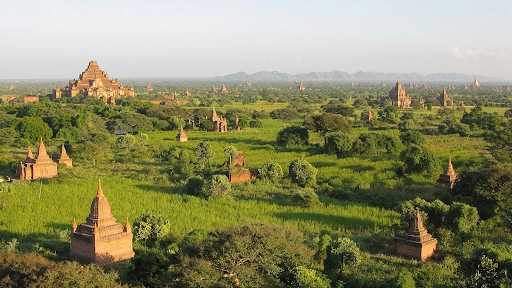In the early morning hours of October 11, 1987, a Burmese turboprop plane transporting 49 passengers, including 36 foreign nationals…


In the early morning hours of October 11, 1987, a Burmese turboprop plane transporting 49 passengers, including 36 foreign nationals…
Russian Disinformation is Not New, Say Diplomats Who Implemented the Marshall Plan The obstacles the United States faced in implementing…
Bhumibol Adulyadej, also known as Rama IX, was the ninth monarch of Thailand and the longest-serving head of state in…
In the aftermath of the 1994 Rwandan genocide, ethnic Hutu refugees — including génocidaires — who had crossed into East Zaire to escape persecution from the new Tutsi government carried out attacks against ethnic Tutsis from both Zaire (now the Democratic Republic of the Congo) and Rwandan refugees. The Zairian government was unable to control the ethnic Hutu marauders, and indeed lent them some support as allies against the new, Tutsi-led Rwandan government. In response, the Tutsis in Zaire joined a revolutionary coalition headed by Laurent-Désiré Kabila. Kabila’s aim was to overthrow Zaire’s one-party authoritarian government run by Mobutu Sese Seko since 1965. With Kabila’s forces on the march, Zaire was soon engulfed in conflict. These hostilities, which took place from 1996-1997, are known as the “First Congo War” and lead to the creation of Zaire’s successor state The Democratic Republic of Congo. The United States, who had supported Mobutu until the end of the Cold War, recognized how potentially dangerous the situation was as Kabila gained control of most of the country and advanced rapidly towards the capital city of Kinshasa. In 1997, the United States sent a small group of diplomats to broker negotiations and attempt to come to a peaceful agreement between Mobutu and Kabila.
During World War II, Nazi Germany invaded and occupied continental Denmark, leaving the Kingdom’s other two territories, the Faroe Islands…
Egypt and the Suez Canal became a point of global strategic interest during WWII because of the quick access the…
Since the dissolution of the Ottoman Empire, Yemen was been a hot spot for unrest in the Middle East. The…
Teresita Schaffer enjoyed an illustrious 30-year career in the Foreign Service, developing a reputation as a leading expert on South…
Afghanistan has had a long history of living under foreign rule. Once a protectorate of the British Empire, Afghanistan became fully independent…
C. Douglas Dillon was a politician and diplomat who served as U.S. Ambassador to France in the critical post World…
